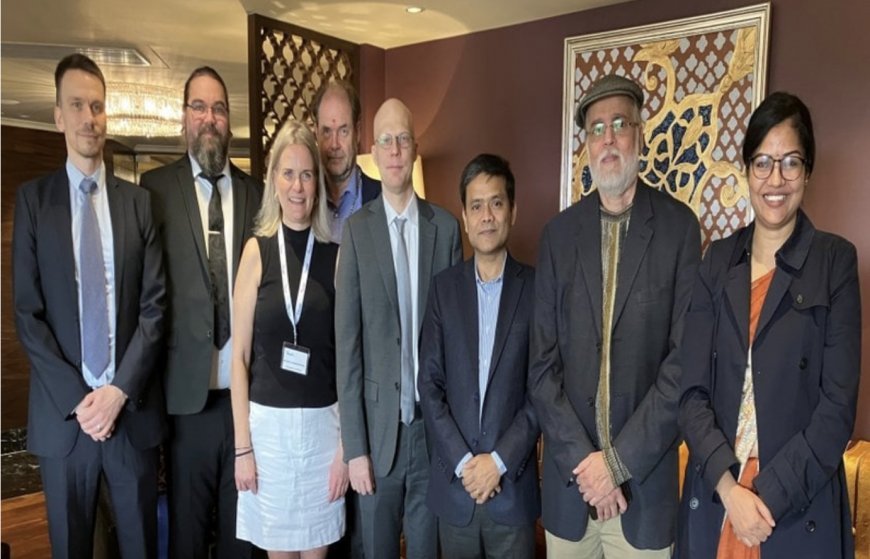IIT Delhi signs MoU with Helsinki University of Finland, will work together on the challenges of air quality and climate change
Indian Institute of Technology (IIT) Delhi has signed an MoU (Memorandum of Understanding) with the Finland's University of Helsinki for academic collaboration. Under this MoU, both educational institutions will work on solving the challenges of air quality and climate change in India. The MoU was signed on Thursday by Prof. Naveen Garg, Dean, of International Programs, IIT Delhi, Prof. Somnath Baidya Roy, Head, of the Center for Atmospheric Sciences, and Prof. Sasu Tarkoma, Dean, Faculty of Science, University of Helsinki.

In order to promote the MoU between all IITs in India and the Consortium of Finnish Universities in Finland, it has also been agreed to set up a program on behalf of both educational institutions. In which research infrastructure will be promoted. Along with this, professors and students of both educational institutions will work according to academic cooperation on research and education. They will be developed while preparing a plan for new technology from both educational institutions. Along with developing new technologies, they will also be tested and certified. For this purpose, both educational institutions will also exchange their faculty and students for a specified period of time. Under this MoU, the faculty and students of both educational institutions will work at the Atmospheric Observatory located on the Sonepat Campus of IIT Delhi. Prof. Somnath Baidya Roy, Head, of the Center for Atmospheric Sciences, IIT Delhi, said that the two institutes are working together to develop a world-class atmospheric observatory. This MoU will further strengthen our partnership. With this, we will also create new avenues of cooperation.
Prof. Sasu Tarakoma said that we have a good research collaboration with IIT Delhi which is expanding and deepening. It is important to share information with measurements of the atmosphere over longer timescales to better understand the environment. It is also very important for forecasting air quality in a good way. At the same time, under this MoU, it has been agreed between both educational institutions that they will share information related to research and educational programs with each other. Along with this, the institutes will also share other literature with each other for teaching material and research programmes. It has also been agreed between the two educational institutions that they will also jointly conduct short-term continuing education programs on subjects of mutual interest. In which the faculty of both institutes will participate. Due to this both will be involved in research activities and training programs. These programs will be funded by funding agencies.
